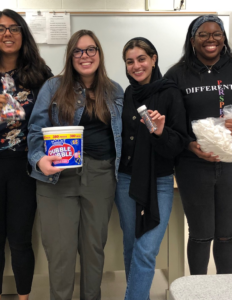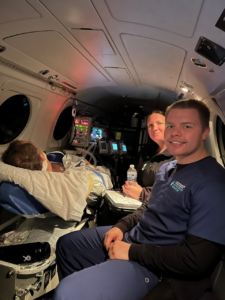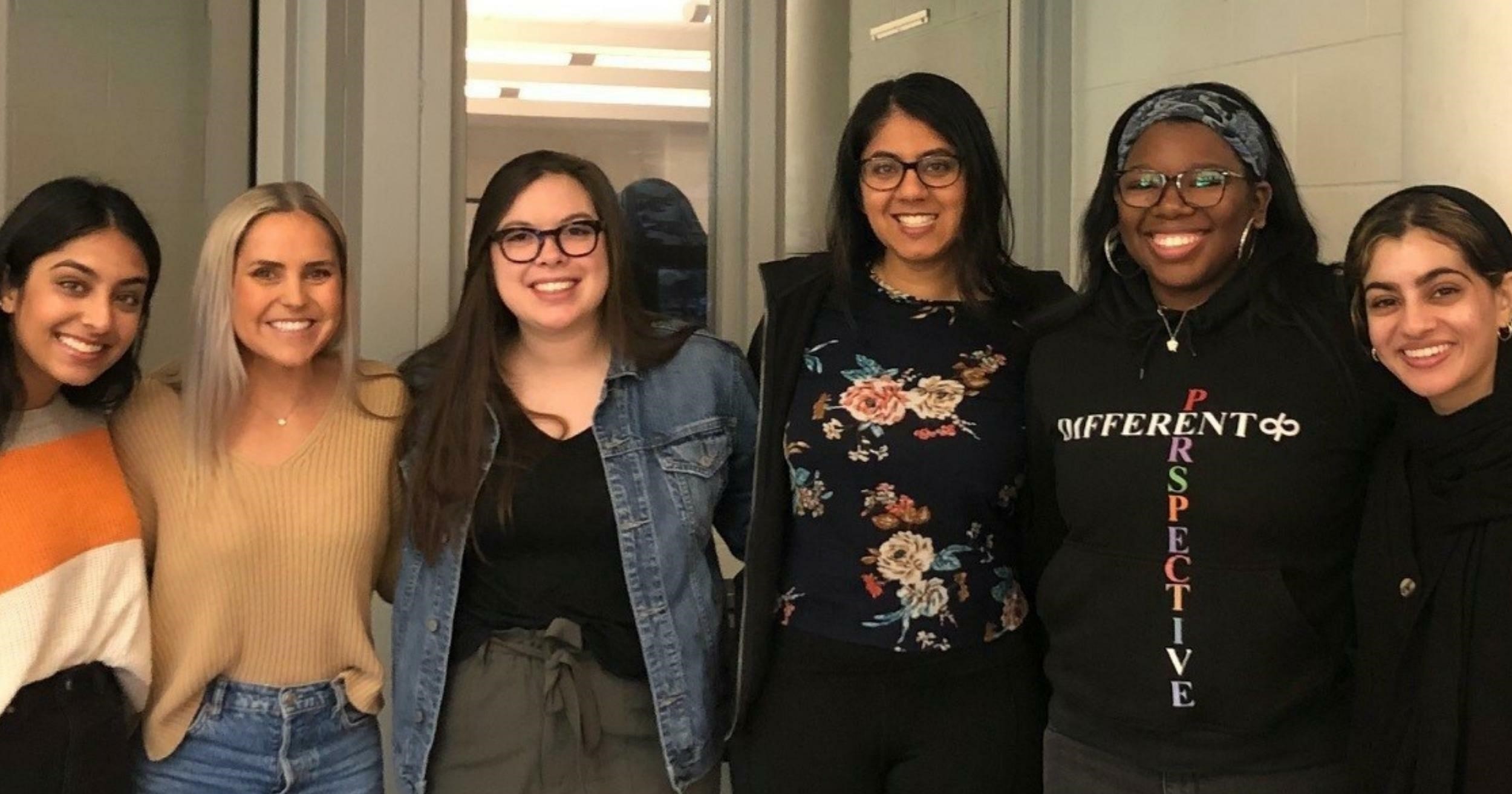Community service and ride-alongs with first responders introduce students to the effects of the environment on our health.
From the day they enrolled in the college to the end of their first term, the inaugural class of the Kansas College of Osteopathic Medicine has logged more than 800 hours of community service. Reflecting a commitment to the community, volunteerism is an important part of the student experience at KansasCOM. Volunteer hours are part of a required course the students take in their first year called Population Health, which examines social and community determinants of health outcomes.
To prepare for the first incoming class, Becky Springer, KansasCOM’s community service specialist, developed contacts with various nonprofit organizations in the Wichita area. These included Humankind Ministries, St. Anthony Family Shelter, Wichita Family Crisis Center, Kansas Children’s Service League, Rainbow United, Treehouse Mission, and the Kansas Humane Society. During orientation, students, faculty, and volunteers split up into teams and visited 26 nonprofits to help with a range of tasks, from sorting clothing donations for the homeless to making dog treats at an animal rescue.
The KansasCOM commitment to community
This focus on community involvement is also important because where we live is a significant factor in our overall health. Some research shows that individuals who live where health facilities are scarce are more likely to experience poor health outcomes, just as food deserts—where produce and healthy foods are hard to find—and industrial pollution impact health.
 A team of KansasCOM students observed this reality during an October visit to the Wichita Juvenile Detention Center where they met with incarcerated youth. For Prarthna Shah, Abby Werhan, Marcela Trevino, Ritu Patel, Symone Brown, and Manahil Khan, the event was eye opening. “These kids are just like other kids in our community,” Shah says. “They love making cookies, watching movies, and dressing up for Halloween.”
A team of KansasCOM students observed this reality during an October visit to the Wichita Juvenile Detention Center where they met with incarcerated youth. For Prarthna Shah, Abby Werhan, Marcela Trevino, Ritu Patel, Symone Brown, and Manahil Khan, the event was eye opening. “These kids are just like other kids in our community,” Shah says. “They love making cookies, watching movies, and dressing up for Halloween.”
Patel enjoyed asking the children what they want to be when they grow up and seeing their faces light up when talking about their passions. “Interrupting the cyclical nature of trauma, poverty, and incarceration starts with us,” Patel says. According to the Prison Policy Initiative, while 14% of Americans under 18 are Black, 42% of boys and 35% of girls in juvenile detention centers are Black. And two out of three confined youth are held in the most restrictive facilities.
KansasCOM students meet with youth at risk
The KansasCOM student delegation witnessed the conditions up close. “When I first visited the juvenile detention center, I was saddened to hear about how COVID-19 had impacted the availability of volunteers and led to staffing constraints,” student-doctor Patel says. “I wanted to remind these kids that their community cares about them by giving them a few hours to forget about their circumstances and just enjoy the holiday.”
Nick Palisch, Ph.D., director of student services for KansasCOM, points out that when it comes to community service, the students go beyond what is asked of them. “I’ve found that a lot of students volunteer beyond the basic requirement,” he says. “That is part of what makes an osteopathic medicine physician different. It’s a holistic approach, and volunteerism teaches the student how to be humble and holistic in their approach to caring for others.”
At KansasCOM, volunteerism is central to the course of training
Later in their academic journey, the students will be doing volunteer work at clinical locations. Some of the class got a head start when they administered the COVID-19 vaccine booster to one another under the supervision of faculty and nurses from the Sedgewick County Health Department. There are also students riding along with ambulances in Wichita, spending a shift with the paramedics, and seeing cases before they get to the hospital.
administered the COVID-19 vaccine booster to one another under the supervision of faculty and nurses from the Sedgewick County Health Department. There are also students riding along with ambulances in Wichita, spending a shift with the paramedics, and seeing cases before they get to the hospital.
One KansasCOM student flew from Wichita to Kansas City, Missouri, on an air ambulance to pick up a patient and fly to Dallas, Texas. The student remained with the patient throughout the entire flight. As students get into their later trimesters, each member of the class will be logging hours at hospitals and in other medical settings.
Students learned about the many available volunteer opportunities at an on-campus community service event hosted by KansasCOM where students connected with more than 30 nonprofit organizations.
“The community truly loves our students,” Dr. Palisch says. “In the years to come, student-doctors—and one day graduates—of KansasCOM will have an increasing impact on Wichita and the region.”

